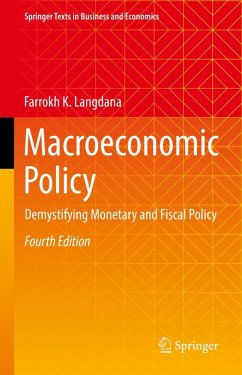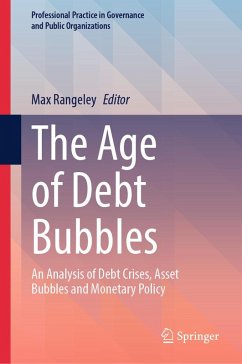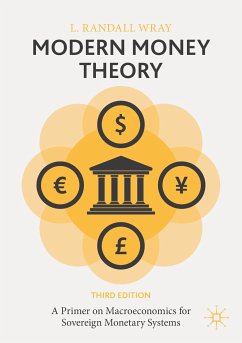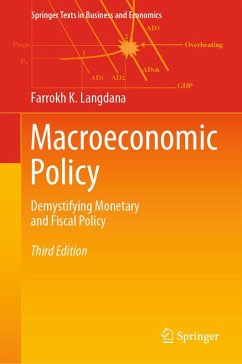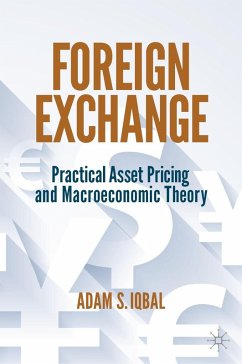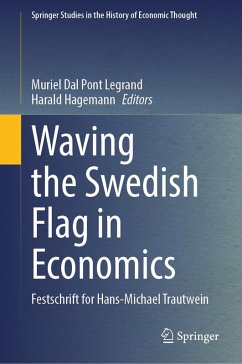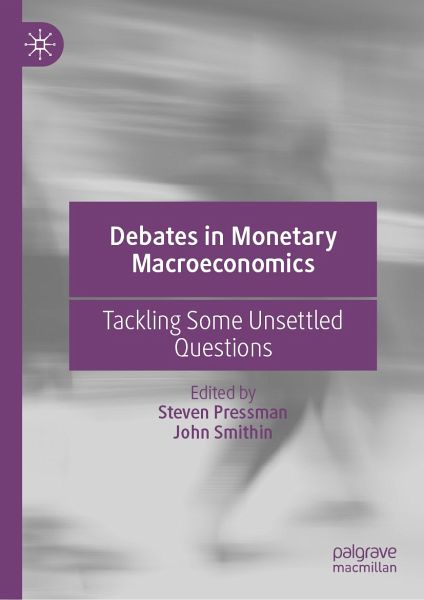
Debates in Monetary Macroeconomics (eBook, PDF)
Tackling Some Unsettled Questions
Redaktion: Pressman, Steven; Smithin, John
Versandkostenfrei!
Sofort per Download lieferbar
128,95 €
inkl. MwSt.
Weitere Ausgaben:

PAYBACK Punkte
64 °P sammeln!
This edited volume presents the key unresolved debates in monetary macroeconomics, covering the five topics of budget, trade, taxes, exchange rates and monetary policy. For each topic, there are two authors - one arguing for a certain policy and one against. The book takes an approach eschewing mathematics or econometrics, instead presenting arguments in the spirit of political economy - while incorporating the most recent thinking in macroeconomics. This approach, combined with the objective of encouraging debate, makes the book ideal reading for students of monetary macroeconomics, researche...
This edited volume presents the key unresolved debates in monetary macroeconomics, covering the five topics of budget, trade, taxes, exchange rates and monetary policy. For each topic, there are two authors - one arguing for a certain policy and one against. The book takes an approach eschewing mathematics or econometrics, instead presenting arguments in the spirit of political economy - while incorporating the most recent thinking in macroeconomics. This approach, combined with the objective of encouraging debate, makes the book ideal reading for students of monetary macroeconomics, researchers seeking alternative views, and the general public.
Dieser Download kann aus rechtlichen Gründen nur mit Rechnungsadresse in A, B, BG, CY, CZ, D, DK, EW, E, FIN, F, GR, HR, H, IRL, I, LT, L, LR, M, NL, PL, P, R, S, SLO, SK ausgeliefert werden.




